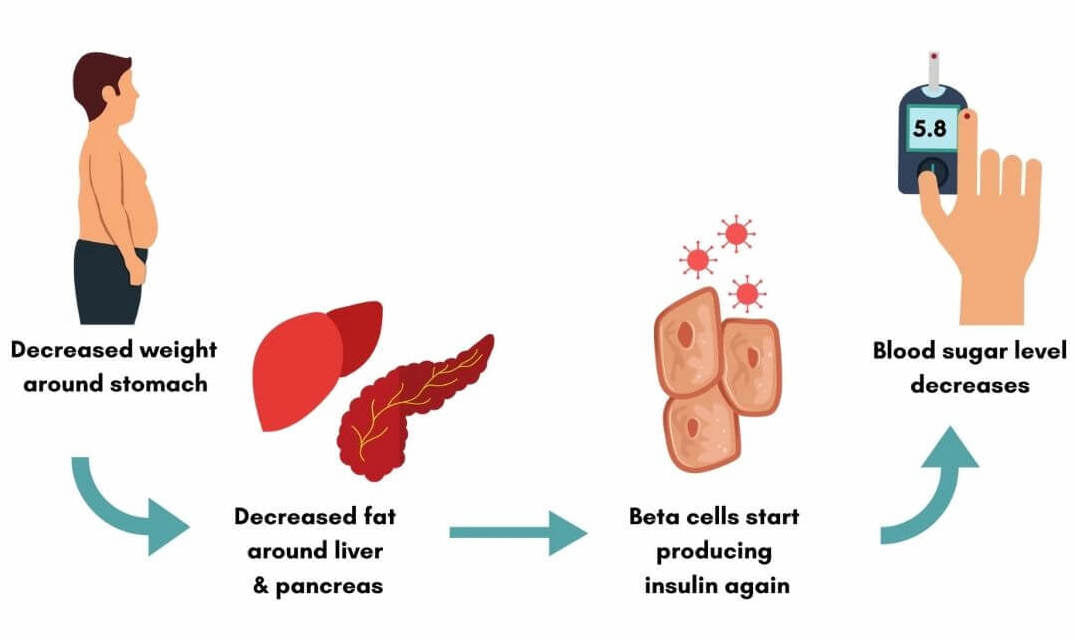Can you reverse your type 2 diabetes?
Overview
Type 2 diabetes has traditionally been known as a life-long, progressive condition with various associated health complications. However, recent research has shown that type 2 diabetes can be ‘reversed’ through significant weight loss, allowing many people to achieve healthy blood glucose levels and come off their diabetes medication. Here we’ll explain what diabetes remission is and how you could reverse your type 2 diabetes with the Counterweight-Plus programme.
What is diabetes remission?
So what does achieving diabetes remission actually mean? If you have type 2 diabetes, it’s when your blood glucose levels are back in a healthy range and you don’t need to take any diabetes medication. Your blood sugar levels would be considered healthy when your HbA1c is less than 48mmol/ml. It’s important to note that we use the term ‘remission’ instead of ‘cure’ because your diabetes can still come back over time. We know that losing type 2 diabetes remission is strongly associated with weight regain, and we’ll go into this in greater detail below.
How can I put my diabetes into remission?
The results showed that after one year:
- People who completed the Counterweight-Plus programme lost an average of 10kg, whereas people who received standard NHS treatment only lost an average of 1kg
- Around ¾ of people who lost at least 10kg through the Counterweight-Plus programme achieved diabetes remission
- Half of the people that followed the Counterweight-Plus programme were successful in stopping their diabetes medication
- 9/10 people who were able to lose 15kg or more achieved diabetes remission, indicating that the more weight that you are able to lose, the more likely you are to put your diabetes into remission

How does losing weight lead to diabetes remission?


Will I definitely go into remission if I lose weight?
The key thing to take away from this is that the sooner you take action to lose weight after you are diagnosed with type 2 diabetes, the more likely you are to achieve diabetes remission. It is also important to remember that even if you don’t achieve diabetes remission, there are many other benefits to losing weight. Losing as little as 5% of your body weight can:

Is remission permanent?
Key things to remember
- Type 2 diabetes doesn’t have to be a permanent condition, it is possible to go into remission
- The most effective way to achieve diabetes remission is by losing weight
- The more weight that you are able to lose, the more likely you are to achieve diabetes remission
- The Counterweight-Plus programme has been scientifically proven to help people achieve significant weight loss and put their diabetes into remission
- The earlier you take action the better, click here to find out more about how you can start the programme!

